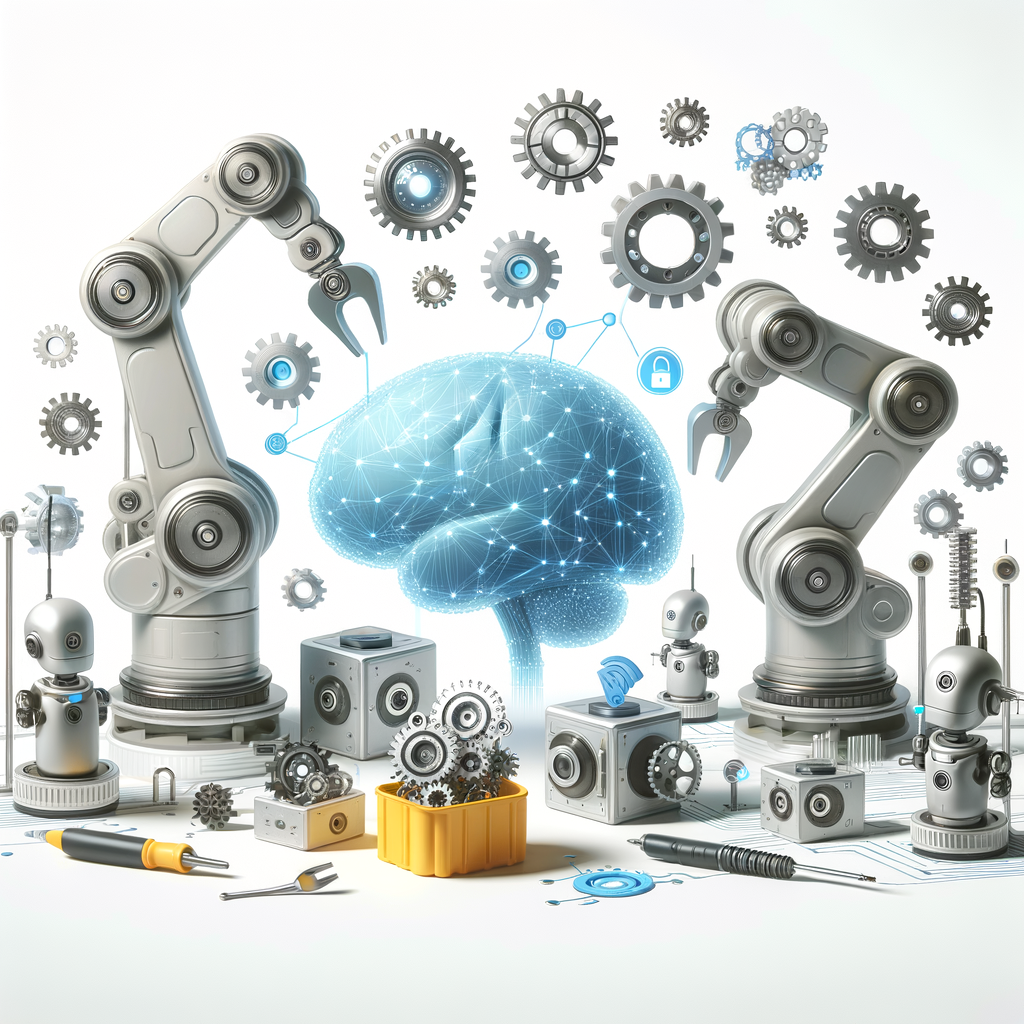
Unlocking the Future: How AI Agents are Revolutionizing Industrial Automation
Explore the transformative impact of AI agents on industrial automation. Learn about the latest advancements, technologies, and applications that are reshaping industries, driving efficiency, and fostering innovation.
Unlocking the Future: How AI Agents are Revolutionizing Industrial Automation
In the modern industrial landscape, the adoption of AI agents is transforming the way production, management, and optimization processes are conducted. These AI-driven solutions are not only enhancing efficiency but are also sparking innovations that are reshaping entire sectors. As industries continue to evolve, AI agents stand at the forefront, driving change and pioneering new paradigms in industrial automation.
The Evolution of Industrial Automation
Historically, industrial automation has been rooted in mechanization and the gradual introduction of computers to control machinery. The integration of programmable logic controllers (PLCs) and supervisory control and data acquisition (SCADA) systems laid the groundwork for the era we are in today. The significant shift is now being driven by AI and its capabilities to learn, adapt, and optimize.
Understanding AI Agents in Industrial Automation
AI agents in automation serve as the digital workforce—capable of carrying out complex tasks with minimal human intervention. They bring together machine learning principles, sensory data, and automated planning to execute tasks ranging from quality checks to predictive maintenance.
Key Features of AI Agents
- Autonomy: AI agents can operate independently, making real-time decisions based on their environmental interactions without requiring continuous human input.
- Adaptability: These agents can adapt to changes in their environment, learning from new information to improve their operations.
- Scalability: AI agents can be scaled across industrial facilities, making them suitable for large-scale deployments.
Technologies Empowering AI Agents
Several technological advancements are propelling the utility of AI agents in industrial automation:
- Machine Learning and AI Algorithms: These form the core of AI agents, enabling them to learn from data and predict future occurrences.
- Internet of Things (IoT): IoT devices feed real-time data to AI agents, providing them with situational awareness.
- Edge Computing: Reduces latency by allowing data processing near the source, enabling quicker decision-making.
Real-World Applications
Predictive Maintenance
This is one of the most impactful applications of AI agents. Companies can use AI to predict equipment failures before they occur, reducing downtime and maintenance costs.
Quality Control
AI agents can perform constant quality assessments by analyzing product data, reducing waste and ensuring consistency without human error.
Supply Chain Optimization
By utilizing predictive analytics and real-time monitoring, AI agents optimize supply chain logistics, ensuring timely delivery and enhancing inventory management.
Case Studies
Case Study 1: Automotive Manufacturing
In automotive plants, AI agents are implemented to streamline production. This includes robotic assistance in assembling vehicles and performing quality inspections—enhancing accuracy and speed.
Case Study 2: Chemical Processing
In chemical industries, AI agents assist in monitoring reaction conditions and adjusting operational parameters to maintain optimal production.
Benefits of AI Agents in Industrial Automation
- Increased Efficiency: With the ability to learn and optimize operations, AI agents significantly increase productivity.
- Reduced Costs: Automation leads to lower operational costs and mitigates the risks associated with human error.
- Enhanced Safety: AI agents take over dangerous tasks, reducing workplace injuries.
- Sustainability: By optimizing resource utilization, AI agents contribute to greener operational practices.
Conclusion
The integration of AI agents into industrial automation is a pivotal advancement reshaping industries for the better. As technology continues to evolve, these agents will become instrumental in unlocking new potentials and driving sustainable growth. Their ability to work efficiently, learn constantly, and adapt swiftly places them as indispensable tools in modern production environments. The future of industrial automation lies in fully harnessing these capabilities, where human ingenuity and machine precision merge to create a robust and dynamic industrial landscape.